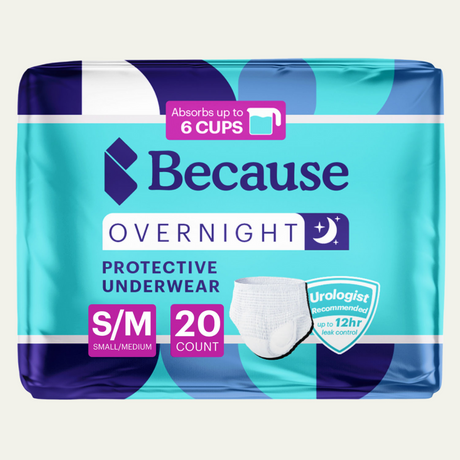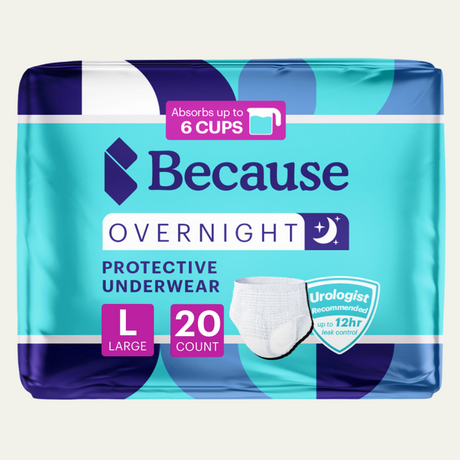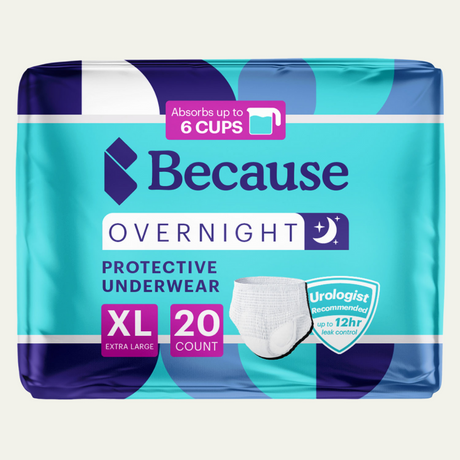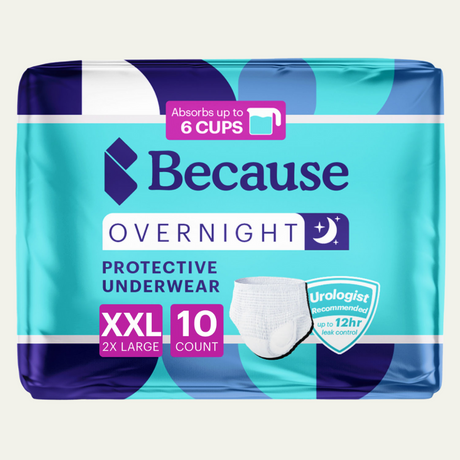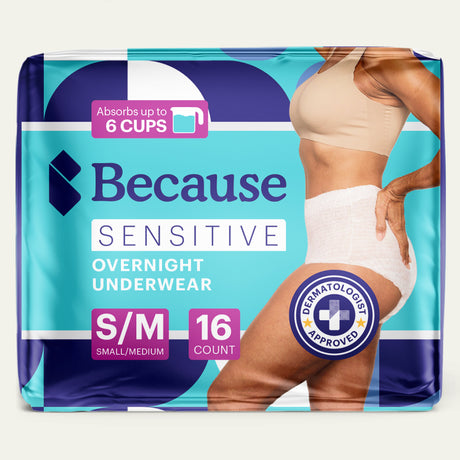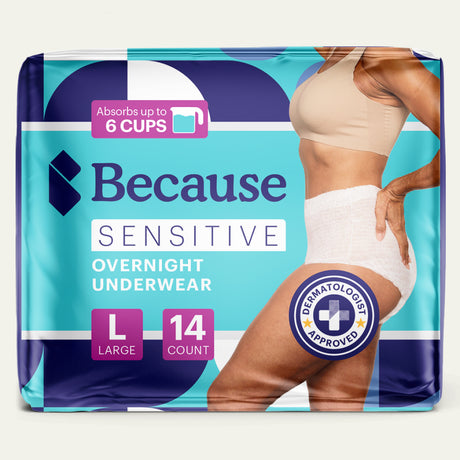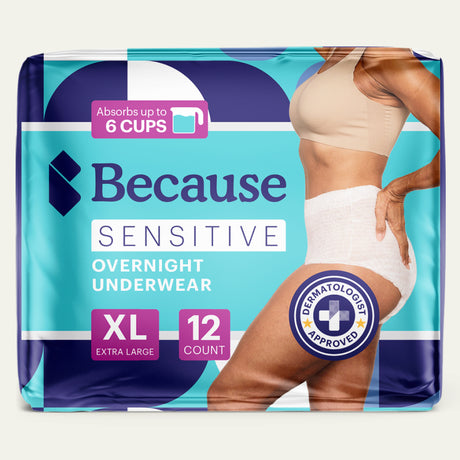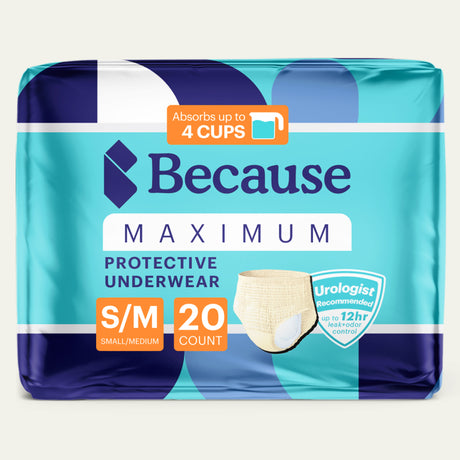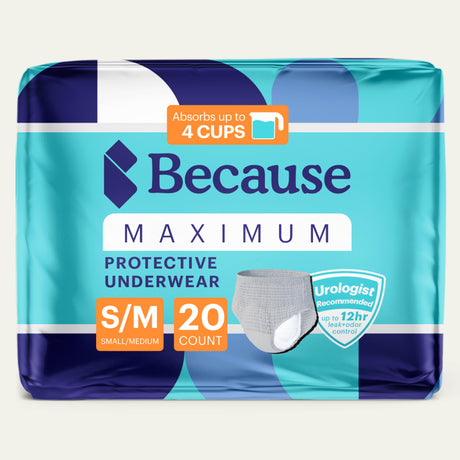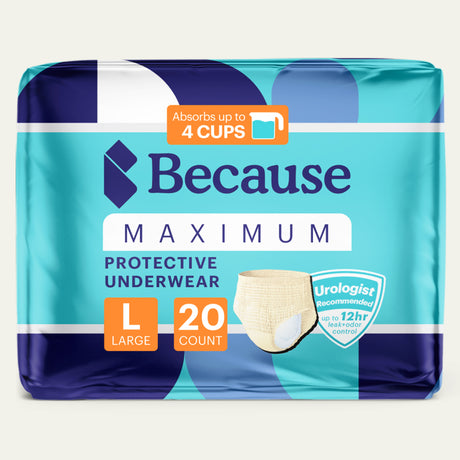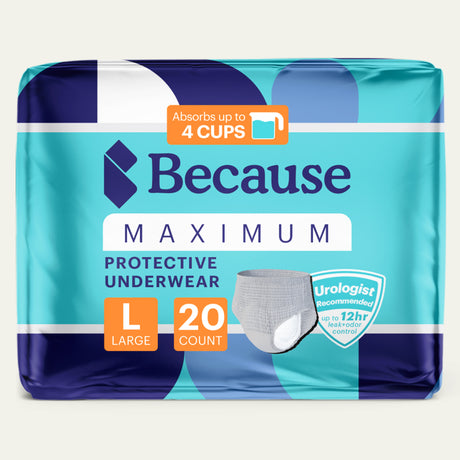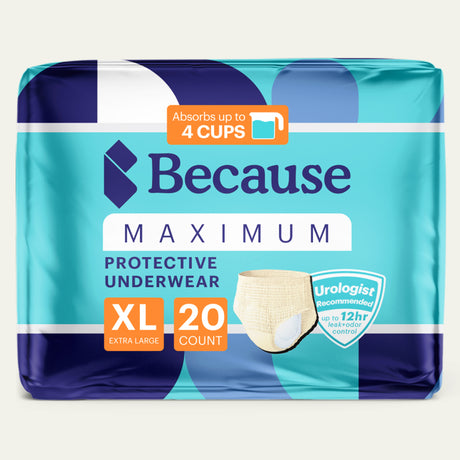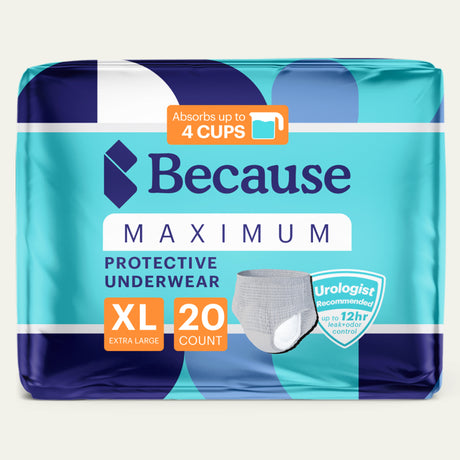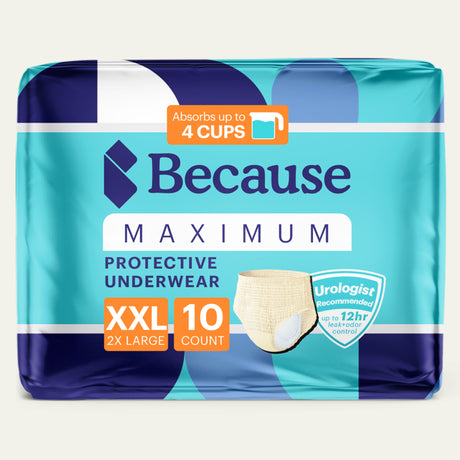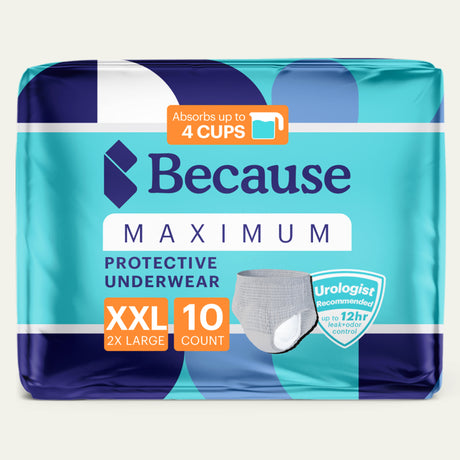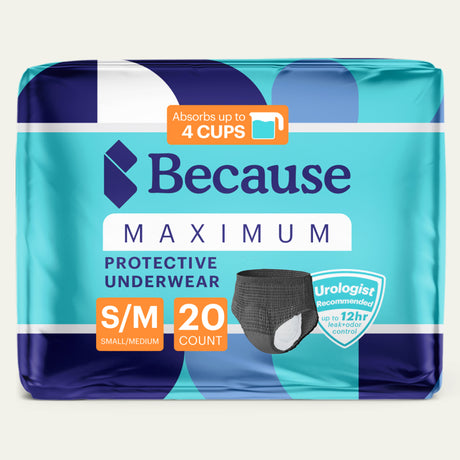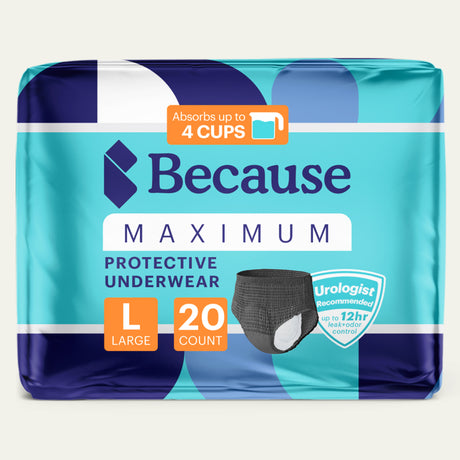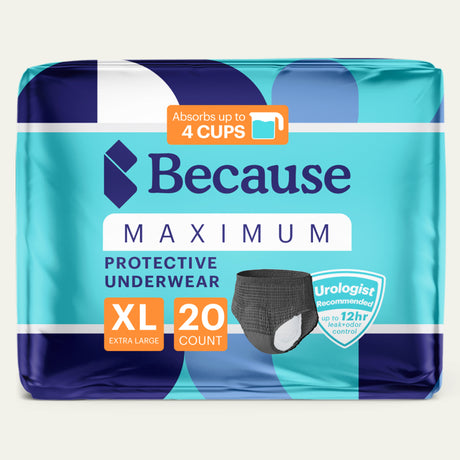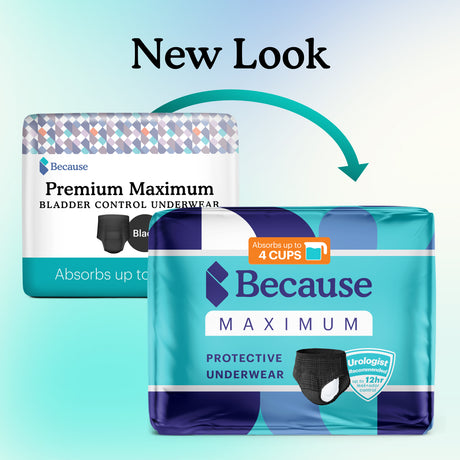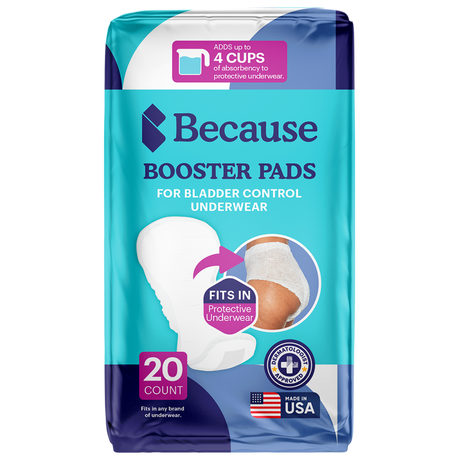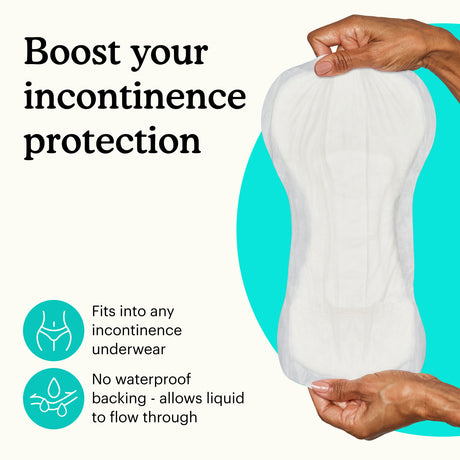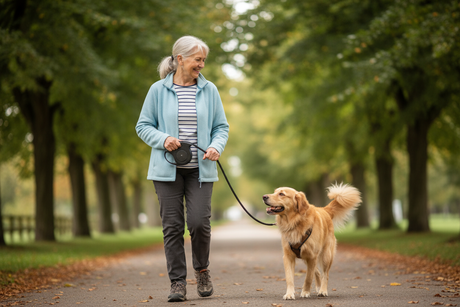We often think of incontinence as merely a physical issue, but the impact of bladder leaks extends far beyond frequent trips to the bathroom. The emotional and social effects can be profound, leading to feelings of embarrassment, isolation, and even anxiety. This post dives deeper into the complex nature of urinary incontinence, highlighting the importance of creating a more supportive world for those who live with it.
Key Takeaways
- You’re not alone. Incontinence, including both male incontinence and female incontinence, is common and manageable, and resources are available to help you find the right solutions.
- Connecting with others can make a world of difference. Online communities provide safe, supportive spaces to share experiences, ask questions, and find encouragement.
- Let’s break the stigma. Open discussions about incontinence can help others feel more comfortable seeking the support they need.

What Is Incontinence? Understanding Its Impact
Urinary incontinence impacts millions of people, but it’s often whispered about instead of openly discussed. Defined as the involuntary loss of urine, incontinence can range from occasional bladder leaks to a complete inability to control the bladder. It’s more common than you might realize and can significantly impact quality of life.
The physical aspects of incontinence are one challenge, but the emotional toll is equally important to address. Many people feel embarrassed, anxious, or isolated when managing bladder leaks. Social situations and favorite activities are often avoided due to fear of an accident.
Incontinence is frequently linked to other factors, such as pregnancy, childbirth, menopause, or specific medical conditions. Recognizing these underlying causes is a key step toward managing symptoms and seeking support. Sometimes, incontinence is temporary, arising from infections or even constipation. Other times, it’s a chronic condition tied to underlying health issues, such as diabetes or neurological disorders.
Regardless of the cause, finding a supportive community makes a significant difference. These spaces allow people to share experiences, seek advice, and understand that they’re not alone in their journey with urinary incontinence.
Why Dedicated Incontinence Support Matters
Talking about bladder leaks isn’t a typical conversation starter, yet incontinence is incredibly common. Creating dedicated spaces to discuss it openly can make a substantial difference.
By sharing experiences, people realize they’re not alone. Open discussions help reduce the stigma surrounding incontinence, making it easier to seek help. Public dialogue on incontinence also promotes broader societal understanding.
Online support groups and forums connect people who “get it.” Sharing advice and stories fosters a sense of community and reminds individuals that they’re not isolated in their experiences. These platforms also provide practical tips, product recommendations, and insights into various treatments, proving to be valuable resources.
Understanding the medical aspects of incontinence is crucial, too. Online spaces allow users to discuss symptoms, ask questions, and learn from each other’s experiences. However, consulting a healthcare professional remains essential for personalized guidance.
Medical Needs vs. Personal Interests
Online spaces can be invaluable for sharing experiences and connecting with others facing similar health challenges. However, it’s important to remember that these forums should prioritize the well-being of those seeking genuine support.
When discussing incontinence online, recognizing the difference between medical needs and personal interests is essential. Incontinence support forums should focus on providing a respectful, supportive environment for individuals dealing with bladder issues. This includes sharing practical advice, offering emotional support, and recommending helpful products.

Build a Safe and Respectful Online Community
Talking about bladder leaks may not be comfortable for everyone, yet a supportive online community can be transformative when managing the realities of incontinence.
Dedicated online spaces addressing sensitive topics, such as incontinence, require conscious efforts to cultivate a safe and respectful environment. Here’s how to contribute to a positive community:
Share Experiences and Support Each Other
Online spaces offer a unique chance for people with incontinence to connect and learn. Studies show that online support groups create spaces for open discussions on life with incontinence, from product recommendations to relationship stress. This open dialogue is crucial for those lacking in-person support.
Create a Judgment-Free Zone
Discussing incontinence requires sensitivity. Organizations like Bladder & Bowel UK (BBUK) emphasize empathy, especially when cultural norms or family dynamics complicate conversations. A judgment-free zone allows everyone to share experiences without fear of embarrassment.
Share Success Stories
Sharing personal stories about managing incontinence can be powerful. When people open up, they help normalize the conversation, reminding others they’re not alone. For instance, the OAB Clinic notes that discussing incontinence publicly helps dismantle stigma and encourages others to join the conversation.
Consider sharing practical tips that worked for you, such as specific products, exercises, or lifestyle changes. Your insights might be exactly what someone else needs.
Give Constructive Feedback
Encouraging constructive feedback fosters a positive and inclusive environment. Building a space where members feel comfortable sharing their thoughts and respectfully challenging ideas is crucial. This approach promotes growth and learning for all involved.
Promote Open Communication
Let's face it: talking about bladder leaks can feel awkward. But remember, open communication is key to breaking down those barriers. When we encourage honest conversations about incontinence, we create a space where people feel comfortable seeking help and support.
BBUK reminds us that discussing incontinence requires sensitivity and understanding, especially when someone is sharing their personal experiences. Be mindful and empathetic in your approach.
Foster Peer Support
One of the most valuable things we can do is create a network of peer support. Encourage members to offer constructive feedback and support to one another. Remember, we're all in this together, and sometimes a little encouragement from someone who understands can go a long way.
Use Reporting Mechanisms
Even with clear guidelines, issues may arise. Reporting inappropriate behavior is vital to maintaining a safe environment. Speak up if something makes you uncomfortable or breaches community standards.
Ready to get started? Join our private incontinence support groups today!
Women's Incontinence Support Group
Men's Incontinence Support Group

Managing Incontinence in Daily Life
It’s essential to remember that incontinence is often manageable. Causes may range from lifestyle factors to underlying health issues. A good first step? Speak with your doctor to identify the cause and discuss treatment options.
Living with incontinence can sometimes feel overwhelming, but self-care and stress management can improve your overall well-being. Think of it as a form of self-compassion. Simple actions, like regular exercise, a balanced diet, and relaxation techniques, can make a positive impact.
Chronic incontinence often stems from underlying conditions, such as bladder or nerve issues, possibly resulting from pregnancy, childbirth, or surgery. Knowing the root cause helps you make informed decisions about your health.
Related Articles
- Can a UTI Cause Incontinence?
- Frequently Asked Questions: Incontinence in Women
- Does Menopause Cause Incontinence?
- Finding Free Incontinence Supplies for Low-Income Individuals
- Living with Incontinence: Let’s Talk About Diapers
Frequently Asked Questions
How common is incontinence, really?
Incontinence is very common, affecting millions globally. It’s more widespread than most realize and deserves open discussion..
I think I might be experiencing incontinence. What should I do?
It's always best to talk to your doctor if you're experiencing any changes in your bladder control. They can help determine the cause and recommend the best course of action for you.
Are online support groups helpful for incontinence?
Absolutely! Online support groups can be fantastic resources for connecting with others who understand what you're going through. They offer a safe and often anonymous space to share experiences, ask questions, and find encouragement.
What can I expect at my doctor's appointment?
Your doctor will likely ask you about your symptoms, medical history, and lifestyle. They may also perform a physical exam. Don't be afraid to be open and honest with your doctor—the more information they have, the better they can help you.
What are some ways to manage incontinence?
Managing incontinence often involves a combination of approaches, and the best course of action varies from person to person. Your doctor can recommend the most effective strategies for you, which may include lifestyle changes, pelvic floor exercises, medication, or in some cases, surgery.
Sources:
Bladder & Bowel UK. (2024, Feb. 14). Supporting someone with incontinence: Shining a light on the impact on families. Retrieved from https://www.bbuk.org.uk/supporting-someone-with-incontinence-shining-a-light-on-the-impact-on-families/
eTrendix. 2024, Mar. 12). How to talk about incontinence: A guide to breaking the silence. Retrieved from https://etrendix.com/blogs/news/how-to-talk-about-incontinence-a-guide-to-breaking-the-silence
Goudelocke, B. (2022, September 14). Breaking the silence: Effective strategies for women to talk about incontinence. OAB Clinic. Retrieved from https://www.oabclinic.com/dr-goudelocke-bladder-health-blog/breaking-the-silence-effective-strategies-for-women-to-talk-about-incontinence
Graphy. (2022, March 30). How to create a safe online community: Moderation & safety guidelines. Retrieved from https://graphy.com/community-platform/blogs/how-to-create-a-safe-online-community-moderation-safety-guidelines
Lewis, S. (2021, Feb. 12). Urinary incontinence. Healthgrades. Retrieved from https://www.healthgrades.com/right-care/kidneys-and-the-urinary-system/urinary-incontinence
Mayo Clinic Staff. (2023, Feb. 9). Urinary incontinence: Symptoms and causes. Mayo Clinic. Retrieved from https://www.mayoclinic.org/diseases-conditions/urinary-incontinence/symptoms-causes/syc-20352808
AlShafie, K. (2023, Mar. 16). 10 Ways to foster an inclusive online community. Online Moderation. Retrieved from https://www.onlinemoderation.com/ways-to-foster-an-inclusive-online-community/


